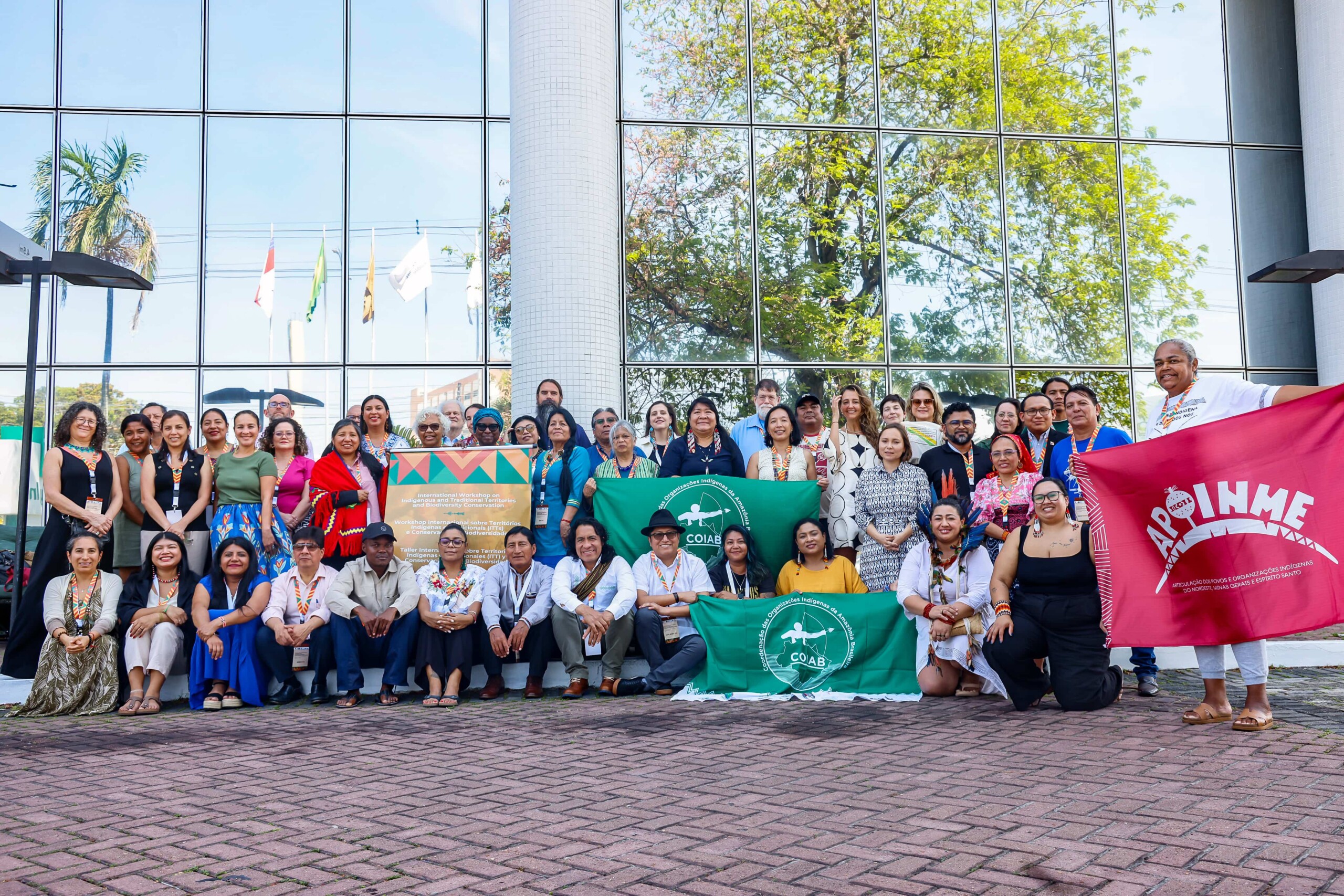Manaus – September 8, 2025. The International Workshop on Indigenous and Traditional Territories (ITTs) and Biodiversity Conservation successfully concluded on September 5 in Manaus, Brazil. The event brought together 60 experts from 21 countries for four days of intensive collaborative work. The main objective was to adopt crucial recommendations in preparation for the first meeting of the Subsidiary Body on Article 8(j) (SB8J-1), to be held in October in Panama City.
“ITTs are areas where Indigenous Peoples and local communities conserve and restore biodiversity, practice the sustainable management of resources, and directly contribute to climate action—without necessarily being designated as Protected Areas or OECMs. They are fundamental to achieving the goals and targets of the Kunming-Montreal Global Biodiversity Framework.” — Ramiro Batzin, Co-Chair of the IIFB.
Discussion panels and topics addressed
Over the four days of work, panels focused on the following themes:
- Contribution of Indigenous and Traditional Territories (ITTs) to Biodiversity Conservation.
- Contributions of Indigenous Peoples and local communities to biodiversity restoration.
- Contribution of Indigenous lands and territories to climate action.
- Use of traditional lands and resources in spatial planning processes.
- Modus operandi of the Subsidiary Body on Article 8(j).
- Process for reviewing and updating the Voluntary Glossary of Key Terms.
- Global report on collective progress in implementing the Kunming-Montreal Global Biodiversity Framework.
- Strategies for mobilizing resources for the implementation of the Global Biodiversity Framework
Key Results and Recommendations
“Biodiversity is one of those precious goods for which Indigenous Peoples have been watchful guardians, thus benefiting the entire planet.” — Joenia Wapichana, President of FUNAI
The main outcome of the workshop is a report containing a set of key recommendations developed by the participants. These recommendations are vital for the implementation of the Goals and Targets of the Kunming-Montreal Global Biodiversity Framework and call for the recognition of ITTs as a primary pathway for achieving the 30/30 ambition under Target 3 of the Global Biodiversity Framework, distinct from Protected Areas and Other Effective Area-Based Conservation Measures (OECMs).
“The role of Indigenous territories in conserving biodiversity and the climate is fundamental. We are part of that biodiversity, and our territories are the most preserved spaces in the world. This is not only a belief; it is a fact. The Earth is our mother, and we are her protectors.” — Elisa Pankararu (APIB)
These recommendations will be presented at high-level events, including the first meeting of the Subsidiary Body on Article 8(j) (SB8J-1) in Panama (October 2025), the IUCN World Conservation Congress in Abu Dhabi (October 2025), COP30 of the UNFCCC in Belém (November 2025), and will be elevated to COP17 in Yerevan, Armenia (2026). This conference will be crucial for assessing progress and implementation of the Kunming-Montreal Global Biodiversity Framework.
“The recognition of Indigenous territories is the most effective policy for biodiversity conservation and for combating the effects of climate change. With this step, we can move forward and build a future where conservation is fair and effective for all.” — Angela Amanakwa Kaxuyana (COIAB)
Support and Collaboration
The workshop was co-organized by the International Indigenous Forum on Biodiversity (IIFB), the Ministry of Indigenous Peoples (MPIs), the National Foundation of Indigenous Peoples (FUNAI), the Articulation of Indigenous Peoples of Brazil (APIB), the Coordination of Indigenous Organizations of the Brazilian Amazon (COIAB), the Indigenous Women’s Biodiversity Network (IWBN), and the Indigenous Women’s Biodiversity Network of Latin America and the Caribbean (RMIB-LAC). It was made possible thanks to the generous financial support of the International Land and Forest Tenure Facility and Global Affairs Canada (GAC) through the IUCN-IIFB Podong Indigenous Peoples Initiative.
For more information, please visit the event webpage, where the presentations, discussion documents, and final agreed documents are available: https://iifb-indigenous.org/itts-workshop/
Photo Credits: ITTs Workshop.
















